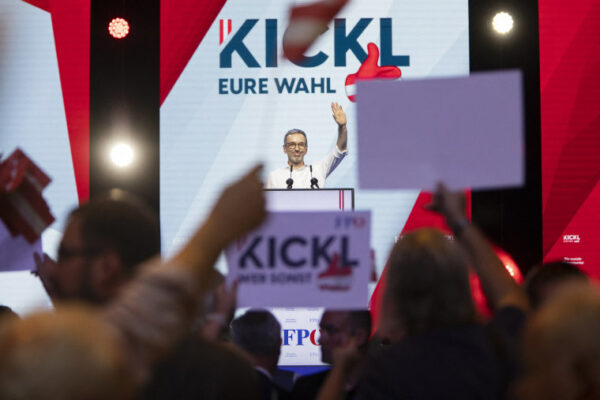Black Church Has Gen-Z Issue: ‘Don’t Come Into Building Anymore’…

On a Sunday morning, about 100 worshipers gathered for services at Mother Bethel African Methodist Episcopal Church in Philadelphia.
The choir filled the room with verses from “Pass Me Not, O Gentle Savior.” The kick drum thumped. The high hat ticked. And the audience punctuated the hymn with the syncopated double clapping often heard in Black churches. Some of the congregants sang with masks over their faces. But as the crowd nodded along to the testimony and sermon that day, the church is facing a challenge: The congregation is getting older, with few young people in the pews.
Mother Bethel is the birthplace of the A.M.E. church, a major denomination of the Black Protestant tradition.
Its pews were once packed.. During the Great Migration in the 1920s, Mother Bethel’s membership peaked at about 4,000, according to the Rev. Mark Tyler, 58, who has led the church for the last 16 years. The decline has been slow but devastating: Today, it has about 700 members, with about 300 regular in-person churchgoers.
Black churches across the country are struggling to get younger congregants through their doors. Church membership has plunged among Black adults by almost 20 percentage points in the last two decades, according to Gallup. And among the Black Millennials and members of Generation Z who do attend religious services, about half do so at majority Black churches, compared with two-thirds of Black baby boomers and members of the Silent Generation, according to a Pew Research Center survey.
Though many houses of worship across America are struggling with falling membership, the singular standing of the Black church means that its declining numbers have far-reaching consequences for social cohesion and Black political power writ large.
For centuries, the church has been not only the spiritual and social center of Black life but also a political force. The church is where the civil rights movement incubated, pastors have launched political careers, and its modern-day members have mobilized in support of political candidates.
This cohesion has helped Black people gain political influence. Churches may be nonpartisan entities, but attending a majority Black church is strongly correlated with Democratic Party identification, according to the 2020 book “Steadfast Democrats,” by Chryl Laird and Ismail White. Even Black conservatives with strong ties to Black institutions tend to vote for Democrats.
The dwindling membership of the church could play a factor in why some younger Black voters seem more disconnected from the Democratic Party. And the ability of the Black church to turn out its voters in a crucial electoral state like Pennsylvania could help tip the outcome in what is expected to be a close election.
Older Black churchgoers lament the church’s declining membership, worried that the great generational chain of inheritance has been broken, imperiling the civil and voting rights legacy they’ve created. And they are confounded by the cultural divides that make it difficult to reach younger members of their community.
Carolyn Wilson, 70, said that her father died just before the Voting Rights Act of 1965 was signed. She votes, she said, “because that right was taken from him.”
She regularly attends a church in West Philadelphia, but she has had trouble cultivating that same sense of history and responsibility among younger Black people. “They want to know ‘what’s in it for me?’” she said.
But for many younger Black Americans, the church is not central to their lives — with technology, the pandemic and social issues all playing a part.
“There’s such a divide in the church among the generations,” said Donnell McLachlan, a 30-year old social media influencer from Chicago who makes videos about his religious journey. “A lot of people don’t realize that some of the kids just aren’t coming back.”
Services on Zoom
“You have to remember our church was founded in protest to racism,” Mr. Tyler, of Mother Bethel, said.
In 1786, Richard Allen, a free Black man, began preaching to other free Black people at the St. George’s Church, an antislavery, white Methodist church in Philadelphia. Inspired by the American Revolution, he and several Black leaders formed the Free African Society, which advocated the abolition of slavery.
But as more free Black individuals began to worship at St. George’s, tensions grew with the white congregants who wanted segregated pews. Allen and others walked out. Afterward, he started Mother Bethel and eventually became the first bishop of the A.M.E. denomination. The Black church would become the first institution formed by newly emancipated slaves.
“This was the only place African Americans could really go to freely worship, to gain education,” said Margaret Jerrido, 79, the archivist at Mother Bethel. Two of the most prominent historically Black colleges, Morehouse and Spelman, began in church basements. “Socially, this is where they could come to dance and didn’t have to be interrupted,” she added, of the Black worshipers. Politically, they could discuss the issues of the day.
The internet and social media have replaced much of that in-person discourse. “That really has taken over the coming in and meeting, and gathering together,” Ms. Jerrido said.
The pandemic accelerated this change.
Black Protestants are especially likely to attend virtual services and are more likely to cite Covid as a reason, according to Pew. They are also more likely to attend online prayer groups or to use apps to remind them to read scripture. Of those regularly attending virtually, 42 percent say they felt a “great deal” of connection to the in-person service, compared with 72 percent of those attending in person, according to Pew.
“They don’t come into the building anymore, and we miss that,” Ms. Jerrido said.
Their absence poses a problem for the service itself.
Black religious tradition is rooted in call and response, with the pastor feeding off the vocal and nonverbal reactions of the congregation. “People are clapping, people are waving their hands, and there’s a lot of expression that affirms for you if the service and the sermon is going the right way,” Mr. Tyler said.
Not having that interaction during the pandemic, Mr. Tyler added, “drove some older colleagues crazy.”
But he said that he has learned to embrace the hybrid service and believes that digital connection can be a useful tool for community building, despite some awkward adjustments.
“I found different ways to preach and to get that response from people,” he said. “I use the chat. Those people are talking back to me on Facebook. I’m like, OK, that’s hitting the way I thought.”
And even before the pandemic, he pointed out, there was videoconferencing for Bible study and board meetings.
But some in his congregation talk about a sense a loss. Keith Matthews, 61, brought his young grandson to services on an August Sunday.
Mr. Matthews makes it every week unless he’s traveling. But not his children.
He is not sure where young Black people physically congregate anymore. But, he said, “my children who are younger adults — them, their peers — they do spend a lot of time on social media.”
Finding Faith Online
Mr. McLachlan, the influencer, has a master’s degree in religious studies and planned to become a pastor. Instead, he discusses his faith with almost 350,000 followers on TikTok.
Raised in a deeply conservative Apostolic Pentecostal church in Chicago, Mr. McLachlan was active in the choir and the praise and worship team. He taught Sunday school. The church was also a place for familial connection, where he would congregate with cousins.
But that would eventually change.
“I looked up, and it was like I was the last of my generation of cousins that was still there,” Mr. McLachlan said.
It wasn’t until the pandemic, when he said he had space to sit with his thoughts, that he also decided to leave the church.
Several factors contributed to his growing alienation. The emphasis on sin created constant tension, shame and a “fear of going to hell” for making mistakes, he said. What he was taught about homosexuality also made it difficult to connect with L.G.B.T.Q. family members, to “fully love the people that I cared about.”
He also did not like that some pastors criticized the Black Lives Matter protests after Michael Brown was killed by a Ferguson, Mo., police officer in 2014.
It’s notable that those protests, the largest contemporary Black rights movement, started online as a hashtag, and not as a sermon in the pulpit.
But Mr. Tyler of Mother Bethel said there was a common misconception about the Black church: that it has always led Black social movements. He cited the Black Power movement of the 1960s, led by young activists like Stokely Carmichael, who felt that older civil rights leaders were not going far enough in addressing racism.
“Stokely’s power doesn’t come from the church,” Mr. Tyler said. “It comes from the street. And it comes from academia. They’re catching young college students’ attention.”
Today, social media platforms like TikTok allow for people to find their own communities.
But even Mr. McLachlan laments the loss of intergenerational exchange. “I need the wisdom of the elders,” he said. “The elders need the fire and foresight of the young people.”
The problem, he said, is a dynamic of older Black people “expecting respect but not showing respect to young people,” he added.
Finding Young Voters
On a cool August morning, about 20 mostly retired Black churchgoers gathered at Bethel African Methodist Episcopal Church in Bryn Mawr, Pa., to discuss the presidential election.
As cooks chopped garlic and celery in the kitchen, the audience sat around white-cloth tables and discussed voting rights, the conservative agenda known as Project 2025, and the nature of democracy itself.
The “Soul Food” lunch discussion was led by the Rev. Carolyn C. Cavaness, a fourth-generation pastor and a member of POWER Interfaith, a coalition of religious leaders training congregants to discuss the importance of voting with family, friends and neighbors.
But evidence of the generational drop-off could be seen that day. “I’m probably the youngest person here,” Ms. Cavaness, 41, said.
Ms. Cavaness, who also serves as pastor at the nearby Bethel A.M.E. Church of Ardmore, still believes in the power of the Black church.
The pandemic, she said, “showed just how broken this system is and why faith communities, the Black church, are critical because we were able to step up and do things in a way that other entities couldn’t.”
Her church, however, has declined in numbers. It has about 125 members, down from a peak of about 350 in the 1960s and 1970s, according to the pastor. She estimates that about two-thirds of her members are over age 60.
Because young Black people are moving away from the church, Democrats in Pennsylvania are looking at other places to engage with Black voters, said Rotimi Adeoye, 28, who lives in Philadelphia and is a member of the Pennsylvania Young Democrats.
“I don’t think that means that the Black church doesn’t play a crucial role in this election — they definitely do,” he said. “I think for young Black voters, though, we just want to make sure we’re meeting them where they are.”
Mr. Adeoye said that Democrats were using old-fashioned door knocking in Black neighborhoods, outreach on social media and canvassing at places like a local club for young creatives.
Reaching out to these voters is crucial to Democrats. According to an August survey from Pew Research Center, about 77 percent of Black voters nationally back Vice President Kamala Harris for president, compared with 13 percent for the Republican nominee, Donald J. Trump. That number would be a five-percentage point improvement over Mr. Trump’s 2020 share of the Black vote. And while 86 percent of Black voters age 50 and older back Ms. Harris, about 68 percent of Black voters age 18 to 49 say the same.
For church leaders, though, there is a questioning, not just about membership rolls or voting behavior but about the mood of the country.
“I don’t know that there’s necessarily correlation with declining church membership and voter apathy, but I do just think that there is an increased sense that people feel powerless in the world around them,” Mr. Tyler of Mother Bethel said.
Helping Black people realize their power — through faith and civic action — is still vital for Black life and America as a whole, he said.
It is important to believe, he added, that if “you do your part, and then God does God’s part, then things can actually change.”
The post The Black Church Has a Gen-Z Issue: ‘They Don’t Come Into the Building Anymore’ appeared first on New York Times.




